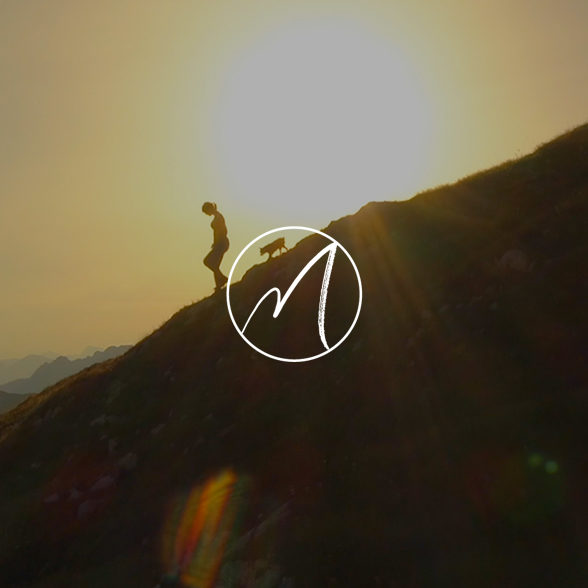
Healing the world’s ecosystems and supporting their inhabitants.
An Update from Karen Gerdes, Martha’s Partner:
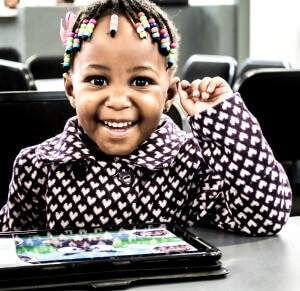 If you think of African education, an image of crowded classrooms and leaky roofs may come to mind. On one of the early trips Martha and I took to Africa, we did in fact see crowded classrooms with smiling students who lived in very poor neighborhoods. And many of the schoolrooms were leaky. But we also met Kate Groch and that changed everything about our image of Africa and education! Kate is the Executive Director of Good Work Foundation (GWF). GWF is a registered NGO that has been working with grassroots education in Africa since 2003. You can view Kate’s TED Talk below. She is a teacher by training and believes that every little (and big) person deserves access to world-class education. If you can teach students to speak “English” and “digital” then all you need is an Internet connection and you have empowered them to discover the world. GWF was one of the first organizations in Africa to bring tablet computing and learning apps to rural learners, and now, it is the only sub-Saharan organization working with Stanford University on cloud-based learning.
If you think of African education, an image of crowded classrooms and leaky roofs may come to mind. On one of the early trips Martha and I took to Africa, we did in fact see crowded classrooms with smiling students who lived in very poor neighborhoods. And many of the schoolrooms were leaky. But we also met Kate Groch and that changed everything about our image of Africa and education! Kate is the Executive Director of Good Work Foundation (GWF). GWF is a registered NGO that has been working with grassroots education in Africa since 2003. You can view Kate’s TED Talk below. She is a teacher by training and believes that every little (and big) person deserves access to world-class education. If you can teach students to speak “English” and “digital” then all you need is an Internet connection and you have empowered them to discover the world. GWF was one of the first organizations in Africa to bring tablet computing and learning apps to rural learners, and now, it is the only sub-Saharan organization working with Stanford University on cloud-based learning.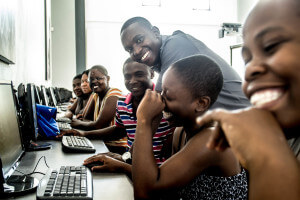 The prototype is the Hazyview Digital Learning Centre (HDLC) campus, located in Shabalala village in the rural province of Mpumalanga (for those readers who know South Africa, this is about 30 minutes drive from the world-famous Kruger National Park). Opened in 2012, this campus of digital learning aims to:
The prototype is the Hazyview Digital Learning Centre (HDLC) campus, located in Shabalala village in the rural province of Mpumalanga (for those readers who know South Africa, this is about 30 minutes drive from the world-famous Kruger National Park). Opened in 2012, this campus of digital learning aims to:
- Create a “bridge” between school and work, providing the skills, tools and opportunities for rural adult learners to become proficient in English and digital literacy;
- Become a hub of digital learning whereby public-sector primary schools outsource their digital learning to the campus; and
- Reduce the “digital divide”, providing rural people with the opportunity to actively participate in the 21st Century economy.
One of GWF’s pioneering projects involves testing a new model of “supplementary” education, whereby rural primary schools can plug their learners into a digital learning hub.
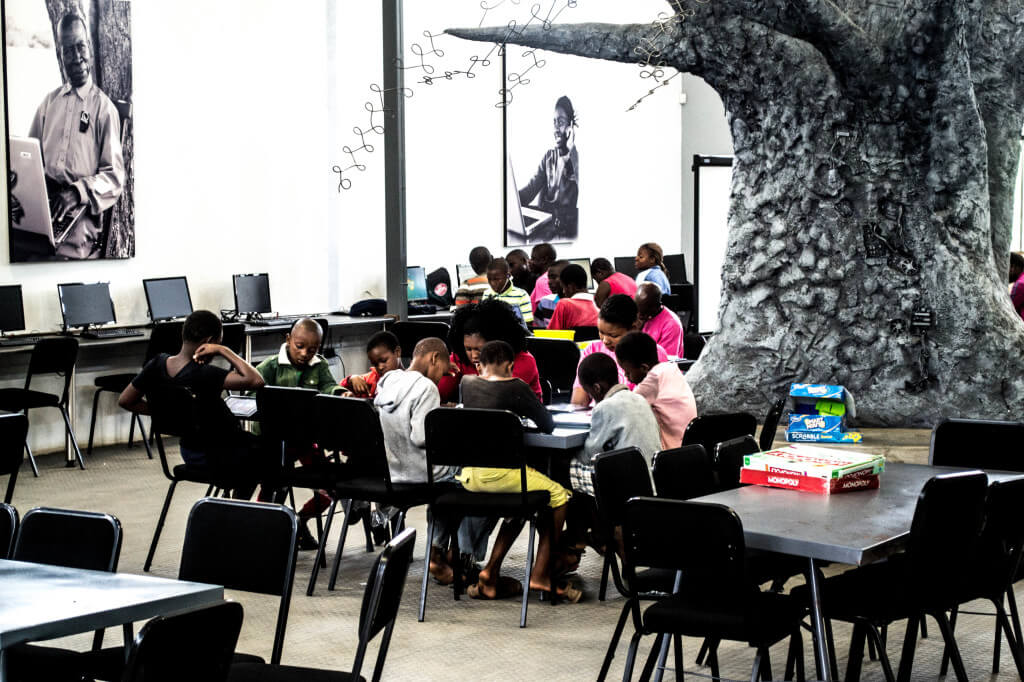
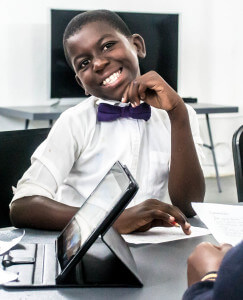 The hub is full of the latest technology – tablets, learning apps, computers, educational software and digital screens. But it’s also full of digital facilitators: adults from the community trained in maximizing learning using technology as a tool. Instead of a class that has a ratio of one teacher to 70 students, the hub provides a ratio of one tablet to one student, with multiple facilitators on hand to guide a self-organized learning environment. GWF is in the eleventh month of this project and the vision is to export the model to other under-resourced rural areas. Rural primary schools no longer need to invest in building computer labs and worrying about expensive software licensing and faulty Internet connections. They just need to plug in to their nearest hub.
The hub is full of the latest technology – tablets, learning apps, computers, educational software and digital screens. But it’s also full of digital facilitators: adults from the community trained in maximizing learning using technology as a tool. Instead of a class that has a ratio of one teacher to 70 students, the hub provides a ratio of one tablet to one student, with multiple facilitators on hand to guide a self-organized learning environment. GWF is in the eleventh month of this project and the vision is to export the model to other under-resourced rural areas. Rural primary schools no longer need to invest in building computer labs and worrying about expensive software licensing and faulty Internet connections. They just need to plug in to their nearest hub.
Donate Now!
Your donation can make a huge difference in healing the world’s ecosystems and their inhabitants.

